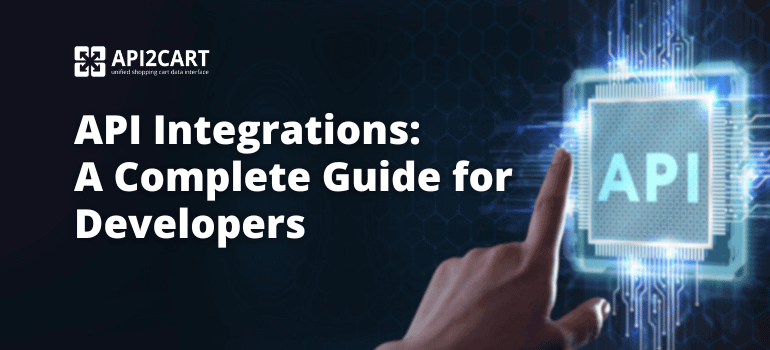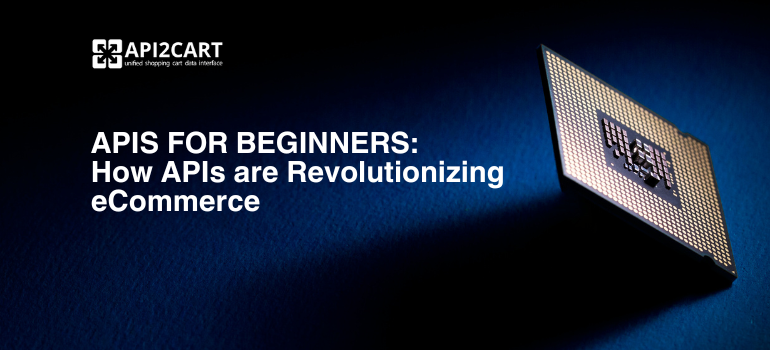
Editor’s note: Today we’ve got a great chance to talk with Matt McLarty, the vice president in API Academy at CA Technologies and just extremely broad-minded person. He has a vast experience in IT and API in particular. Lots of people have a pleasure listening to Matthew's insights on various APIDays. And now, he didn’t mind sharing with us his views about Application Programming Interface here at API2Cart.
Matt, you have been involved in the IT world for over 19 years. Would you mind sharing with us about how did all the business start? How did you come up with the idea of becoming a developer? What was the process of climbing the career ladder - from junior developer to tech team lead?

MM: My dad worked in the software industry, so I was immersed in the industry from a young age. During my university years, I worked at his company in the summer and went from office helper to technical writer to the operator. After getting my Math degree, I got a job as an entry level programmer at a big bank working on Point-of-Sale systems. From there, my curiosity led me to architecture, management and then into the vendor world. I would like to say I had a master's career plan, but at each point I’ve really just taken what seemed to be the right next step. I am happy with the results!
Now, you hold the position of vice president in API Academy at CA Technologies. Can you tell us more about your working experience there?
MM: We started the API Academy in 2012, prior to Layer 7’s acquisition by CA. Our goal was to help companies align their API strategies with their business goals, ensure their API architectures were sustainable, and design APIs with great developer experience. This was very well-received by the industry, is viewed as a unique concept within CA, and serves as a great complement to our industry-leading API Management solutions. On a personal level, working in the API Academy allows me to spend a lot of time with tremendous experts and great people: Mike, Ronnie, Irakli, and Holger.
You are so busy as a bee in CA Technologies, and you participate in various API discussions and meetings, how do you cope with your work and singer career? P.S. Your songs are really cool 🙂
MM: Ha! Thanks for listening! My wife and I are raising two sons: an 11-year-old and a 9 month-old. Music is a passion, but very much a hobby that’s on the back burner at the moment 🙂
Currently, API appears to be the hottest buzzword in the tech world that completely reshapes the development standards of various apps. It would be interesting to know when did you knuckle down to API seriously for the first time?

MM: The term “API” has been around since the 1960s when it was first introduced as part of the programming framework for IBM’s mainframe platform. I first worked on network-based APIs in the late ’90s, developing systems at the bank to provide shared payment services across the POS, ATM, Telephone Banking and (at the time) PC Banking platforms. We upgraded those APIs to be SOAP-based Web Services in 2002. So I suppose I’ve been working on Web APIs for quite a long time, and I’ve seen them evolve through the EAI and SOA eras. The current API phenomenon includes new technological characteristics, but I am most intrigued at how important people—especially developers--are to the success of this paradigm. That’s the biggest difference in my mind.
The new age of technologies and API, in particular, have taken on massive effect in the eCommerce world. It is considered to be a strong mechanism to grow trade’s possibilities. How do you measure API’s worth in business-to-business model?
MM: Much of the discussion around Web APIs has focused on the Open API model, where third party developers provide outsourced innovation through new ideas and apps. In working with enterprises on their API strategies—especially those focused on payments and financial services—I have observed that the most popular and fruitful business driver is to use APIs to strengthen partner networks and increase efficiency for that channel. Many companies invest heavily in their largest partnerships but find it difficult to onboard smaller partners who may open up new segments or drive more organic growth in their respective markets. APIs offer a fantastic way to reduce the barriers in onboarding partners while maintaining appropriate controls.
Communication between shopping platforms and some business soft is the biggest piece of API as it performs fast and secure data interaction. Can you, please, provide us with your expert’s insight about API in eCommerce? What benefits does this technology bring for merchants?

MM: Retail is an industry that has been a leader in API innovation. Amazon is an obvious case study for this, but many other retailers have been able to utilize APIs to weave real-time data and analytics. On top of this, payment APIs are now in high demand, especially following the recent “Apple Pay” announcement. I believe APIs provide a fantastic way for the eCommerce industry to take advantage of new mobile channels as seamlessly as possible, and for merchants to gain greater insights into their business trends and customer preferences. As API2Cart demonstrates, APIs can also normalize eCommerce services offered through multiple providers, much in the way Twilio has normalized SMS and VoIP for the telecommunications industry.
To put the finishing touch, provide us, please, with your expert predictions about API technology in the future.
MM: Predictions are always tough. I think it’s a guarantee that APIs will have a huge role to play in the Internet of Things, which will certainly have an effect on the Retail industry. T-Commerce (“Thing” Commerce)? I think this will be driven more by the fact that the API paradigm is so well-suited to developers, not because the protocols are ideal. As a result, I believe that this will drive the adoption of more device-specific protocols for different networks of “things”. I also believe that we have entered a new era of complexity around data security and privacy, where data ownership and stewardship involve multiple parties. This will drive greater emphasis on security in API technologies.
Thanks very much for the opportunity to share my background and views!
API2Cart Team would like to express the gratitude to Matt McLarty for taking his time and sharing his thoughts with us. If you have some questions to ask about API technologies and API2Cart, feel free to schedule a call with our expert.



